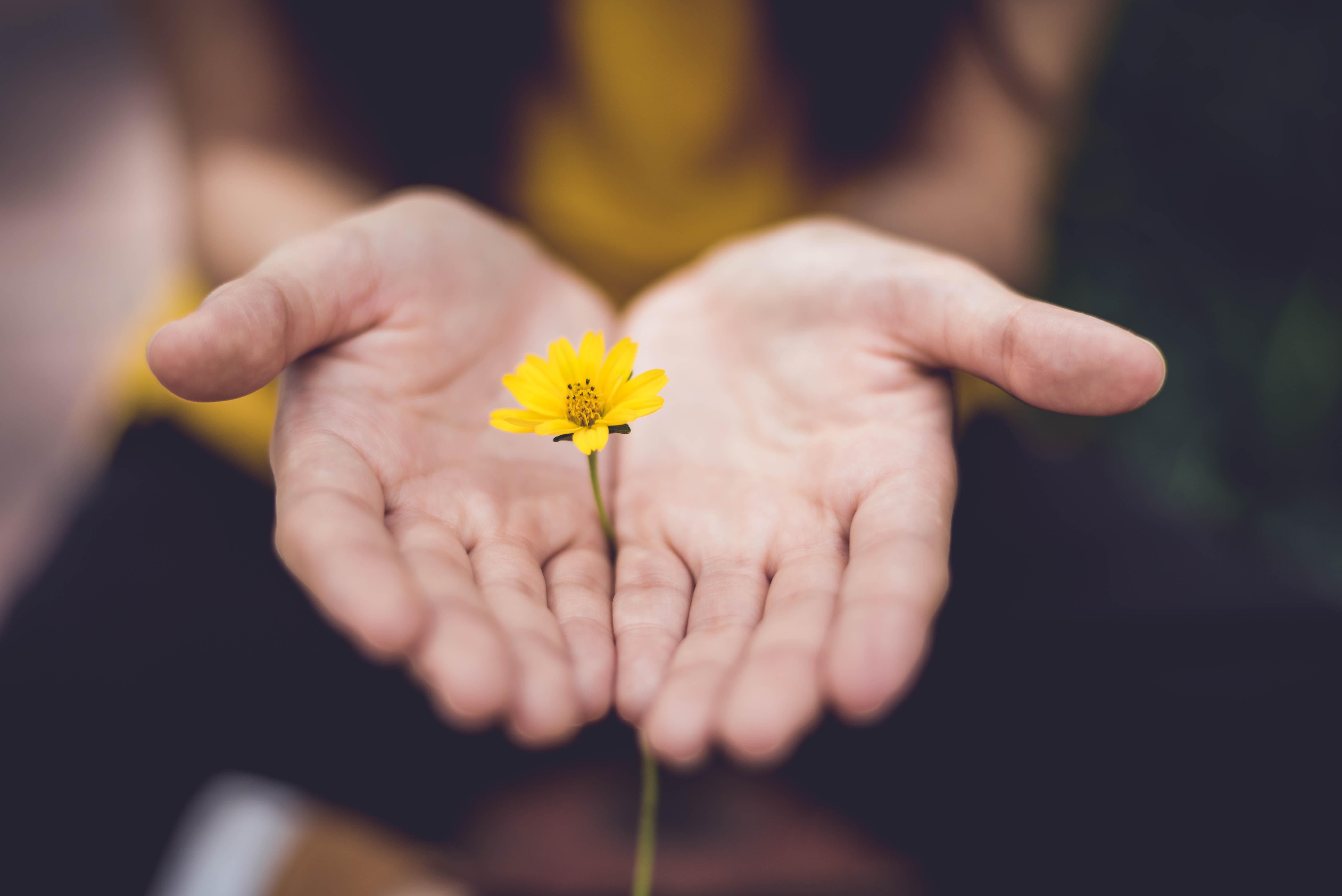Last Updated on December 5, 2023
In the labyrinth of well-being, the connection between spiritual wellness and mental equilibrium stands as a beacon of profound exploration. Join us on this transformative journey as we unravel the intertwined tapestry of spiritual health and mental health, delving into the depths of their intersection and discovering the transformative power they hold when harmonized.
Balancing Act: Deciphering Mental Health vs Spiritual Health
In the pursuit of well-being, understanding the distinction between mental and spiritual health becomes pivotal. Mental health pertains to the intricate web of our emotional, psychological, and cognitive facets—how we perceive, think, and feel about ourselves and the world around us. It’s the realm where strategies for stress management, coping mechanisms, and emotional resilience are nurtured.
On the other hand, spiritual health delves into the existential aspects of our being. It’s the journey of finding meaning, purpose, and connection to dimensions beyond the self. This dimension often involves exploring questions of identity, values, and the quest for transcendence. It’s about embracing a sense of interconnectedness with others, the universe, or a higher power, fostering inner peace and a sense of belonging.
The synergy between mental and spiritual health isn’t merely a juxtaposition; it’s a harmonious interplay. Navigating these realms is akin to balancing the mind, heart, and soul on a tightrope of well-being. Achieving holistic wellness requires recognizing and nurturing both dimensions, as they interweave and influence each other in the pursuit of a balanced and fulfilling life.

Wisdom in Words: Embracing Spiritual Mental Health Quotes
Inspirational and thought-provoking quotes have the profound ability to encapsulate the essence of spiritual mental health. From ancient wisdom to modern interpretations, these quotes serve as guiding lights, offering solace, insight, and motivation in the journey towards mental and spiritual well-being.
“The mind is everything. What you think, you become.” – Buddha
“The greatest weapon against stress is our ability to choose one thought over another.” – William James
“Happiness is not something ready-made. It comes from your own actions.” – Dalai Lama
“Peace begins with a smile.” – Mother Teresa
“The only way out is through.” – Helen Keller
“The present moment is the only moment available to us and it is the door to all moments.” – Thich Nhat Hanh
“Believe you can and you’re halfway there.” – Theodore Roosevelt
“The soul always knows what to do to heal itself. The challenge is to silence the mind.” – Caroline Myss
“Your beliefs don’t make you a better person, your behavior does.” – Sukhraj S. Dhillon
“Where there is no struggle, there is no strength.” – Oprah Winfrey
“In the midst of movement and chaos, keep stillness inside of you.” – Deepak Chopra
“The way to get started is to quit talking and begin doing.” – Walt Disney
“You are not a drop in the ocean. You are the entire ocean in a drop.” – Rumi
“The soul is placed in the body like a rough diamond, and must be polished, or the luster of it will never appear.” – Daniel Defoe
“When the world pushes you to your knees, you’re in the perfect position to pray.” – Rumi
“The only journey is the one within.” – Rainer Maria Rilke
“What lies behind us and what lies before us are tiny matters compared to what lies within us.” – Ralph Waldo Emerson
“The mind is not a vessel to be filled, but a fire to be kindled.” – Plutarch
“Gratitude turns what we have into enough.” – Aesop
“Happiness is not a goal; it’s a by-product of a life well-lived.” – Eleanor Roosevelt
Exploring Spirituality and its Contribution to Mental Health
Spirituality, far beyond religious dogma, stands as a universal facet that profoundly impacts mental health. At its core, spirituality encompasses a broader sense of connection—to oneself, to others, and to the universe at large. When we delve into this dimension, we unearth a wealth of practices that extend beyond conventional beliefs, embracing mindfulness, meditation, gratitude, and a deeper sense of purpose.
These spiritual practices act as nurturing grounds for the mind and soul. Mindfulness, for instance, offers a gateway to self-awareness, enabling individuals to observe their thoughts and emotions without judgment, thereby cultivating resilience in the face of life’s adversities. Moreover, the profound connections forged through spiritual practices foster a sense of community and belonging, which in turn serves as a pillar of support during challenging times.
Delving deeper into this realm unravels a tapestry of benefits—enhanced emotional regulation, reduced stress levels, and an augmented capacity to cope with life’s uncertainties. Through spiritual practices, individuals often discover an inner sanctuary, a source of solace that promotes emotional balance and mental clarity. This inner sanctuary acts as a cornerstone for fortifying mental well-being, nurturing a profound sense of inner peace that transcends the turbulence of everyday life.
By comprehending and embracing these spiritual dimensions, individuals can unlock a treasure trove of tools that not only bolster mental health but also foster a profound sense of purpose and fulfillment. It’s in this intricate interplay between spirituality and mental health that individuals often discover the resilience, serenity, and fortitude needed to navigate life’s diverse landscapes.

Spirituality and Mental Health: Challenges and Opportunities
While the synergy between spiritual health and mental health offers a myriad of benefits, it isn’t devoid of challenges. Skepticism and misconceptions often shroud discussions on spirituality, creating barriers to its integration within mental health frameworks. Cultural variations and diverse spiritual beliefs further complicate this landscape, as individuals approach spirituality from distinct perspectives shaped by their backgrounds, traditions, and experiences.
Addressing these challenges necessitates an inclusive approach—one that acknowledges and respects the diverse spectrum of beliefs and practices. The opportunity lies in embracing this diversity to enrich mental health approaches. By fostering dialogue, education, and understanding, we pave the way for a more inclusive framework that accommodates various spiritual perspectives without bias or exclusion.
Moreover, skepticism towards spiritual practices within clinical settings often hampers the integration of holistic approaches. Bridging this gap involves advocating for evidence-based research that substantiates the efficacy of spiritual interventions in promoting mental well-being. It’s crucial to foster collaboration between mental health professionals and spiritual leaders to develop comprehensive, integrated strategies that honor both empirical evidence and spiritual insights.
Furthermore, unlocking the potential of spirituality in mental health care presents an opportunity to tailor interventions to individual needs. Recognizing and incorporating spiritual beliefs and practices into therapy can empower individuals, offering a personalized approach that resonates with their values and fosters a deeper sense of connection and meaning.
Embracing these challenges as opportunities enables us to create a more inclusive, nuanced, and effective approach to mental health care—one that transcends cultural boundaries and embraces the holistic nature of human well-being. It’s through this integration that we pave the way for holistic healing, acknowledging the profound impact of spirituality on mental health and honoring the diversity of human experiences.
Bridging Spiritual, Mental, and Physical Health in Daily Life
The fabric of well-being isn’t limited to mental and spiritual dimensions; it intricately weaves in physical health. Embracing a holistic approach to wellness involves consciously integrating practices into daily life that harmonize mental, spiritual, and physical well-being. Engaging in daily rituals that align these facets can profoundly impact overall wellness.
Consider incorporating mindfulness exercises into your daily routine. Carve out moments for meditation, even if it’s just a few minutes of focused breathing or contemplation. This practice cultivates present-moment awareness, aiding in stress reduction and promoting mental clarity.
Physical activities infused with mindfulness, such as yoga or tai chi, can serve as a bridge between physical and spiritual well-being. These practices not only enhance physical fitness but also encourage a deeper mind-body connection, fostering a sense of inner harmony and balance.
Moreover, nurturing your spiritual well-being doesn’t always require formal practices. Engage in activities that resonate with your beliefs—be it spending time in nature, journaling, or practicing gratitude. These simple yet profound rituals can infuse your daily life with meaning and purpose, enhancing mental resilience and fortifying your spiritual connection.
Remember, the integration of these elements isn’t about adding more tasks to your schedule; it’s about infusing intentionality into your existing routines. Start small, be consistent, and gradually expand these practices to create a harmonious tapestry of well-being that encompasses the mental, spiritual, and physical dimensions of your life.

Integrating Spiritual, Mental, and Holistic Health Approaches
As we explore the integration of spiritual, mental, and holistic health approaches, recognize that this convergence signifies a transformative evolution in wellness. To truly embody this holistic approach, start by acknowledging how these domains intricately interconnect within your life.
Begin by embracing a personalized approach. Reflect on practices that resonate with your spiritual beliefs and mesh well with your mental well-being strategies. For instance, consider blending mindfulness meditation with a spiritual practice that brings you solace, whether it’s prayer, affirmations, or visualization techniques.
Seek out resources that cater to these integrated approaches. Look for workshops, books, or online courses that combine psychological insights with spiritual wisdom. Engaging with such materials can deepen your understanding of the interconnectedness between spiritual and mental well-being.
Moreover, explore holistic health centers or practitioners who embrace an integrative approach. These professionals often offer tailored strategies that blend conventional mental health practices with complementary therapies, aligning with diverse cultural perspectives and individual preferences.
Cultivate a support network that embraces this holistic approach. Engage with communities or groups that share similar values and aspirations for holistic well-being. Discuss and exchange experiences to glean insights and tips that resonate with your personalized journey.
Remember, the integration of these approaches isn’t about adhering to a strict regimen but about weaving threads of well-being that honor your beliefs and individuality. Embrace experimentation, be open to learning, and curate a wellness framework that authentically aligns with your unique tapestry of spiritual, mental, and holistic health.
Nurturing Spiritual Health and Mental Health for Wholeness
The journey through the corridors of spiritual health and mental health is not a linear path but a mosaic of experiences, challenges, and revelations. As we conclude, remember that the synergy of spirituality and mental health is a dynamic dance, offering a tapestry of possibilities for holistic wellness and fulfillment. Embrace this nexus, for therein lies the key to unlocking the gates to profound inner harmony and wholeness.
Let this exploration serve as a compass, guiding you through the intricate yet beautiful terrain of spiritual health and mental well-being, illuminating the path towards a more enriched and balanced life.







